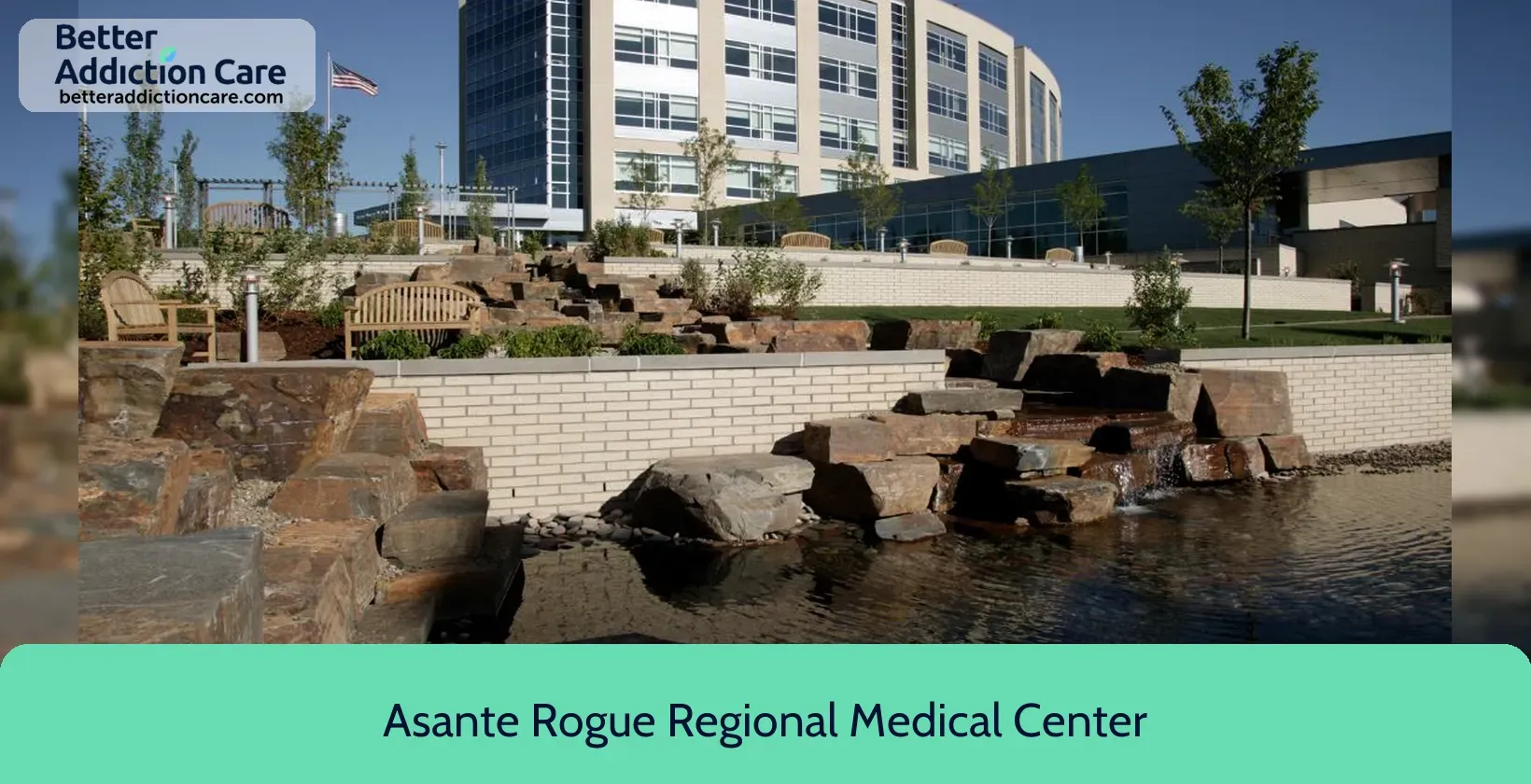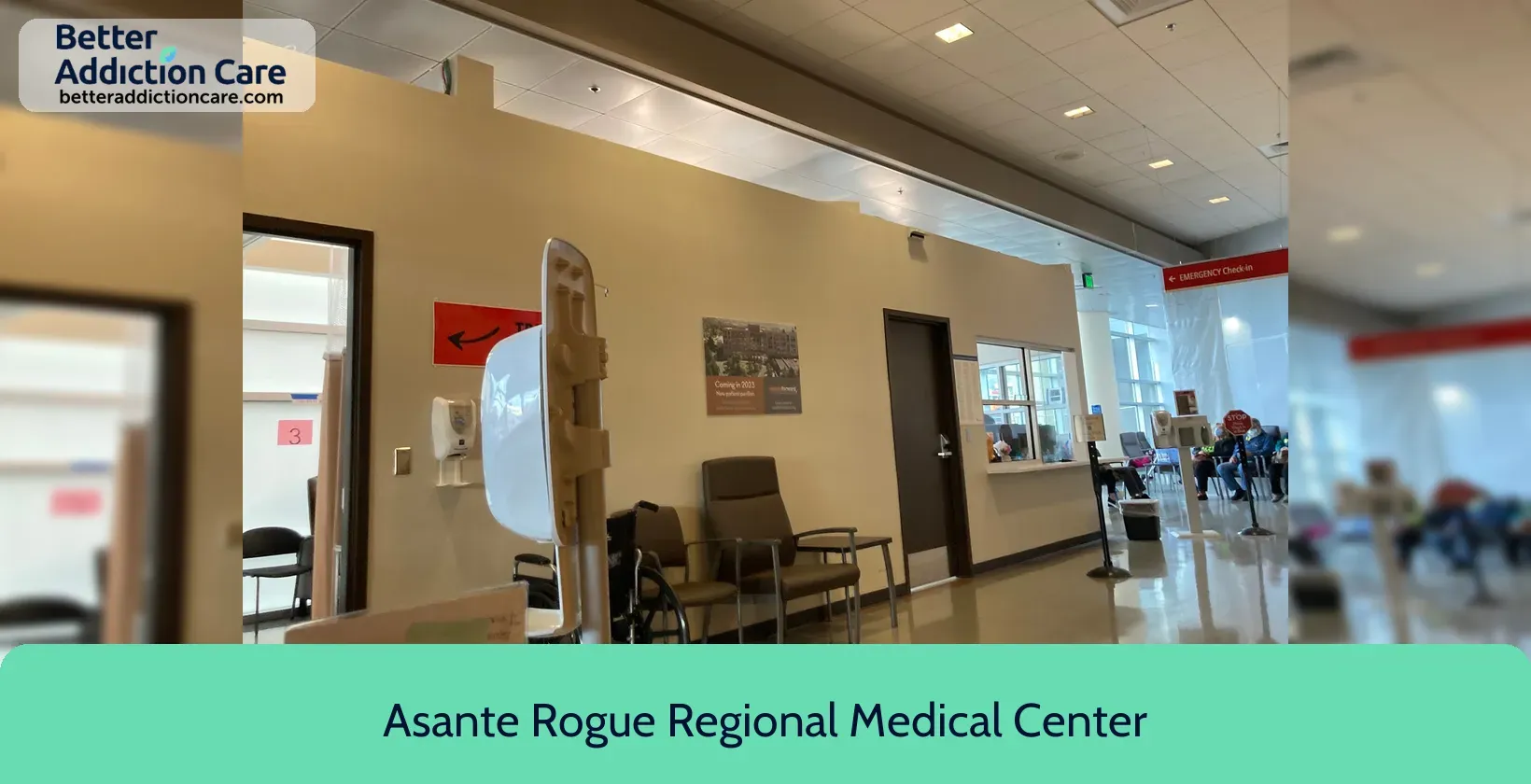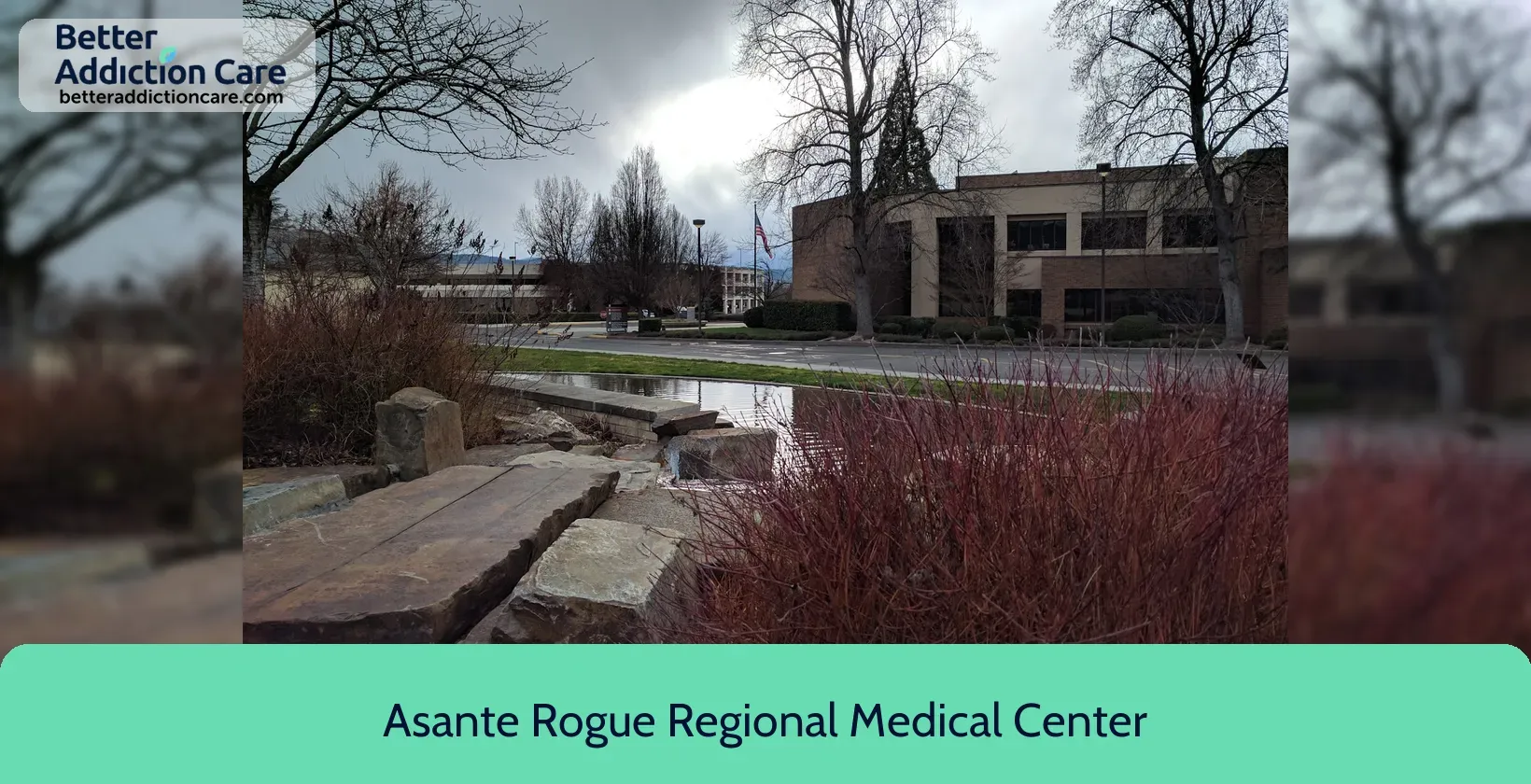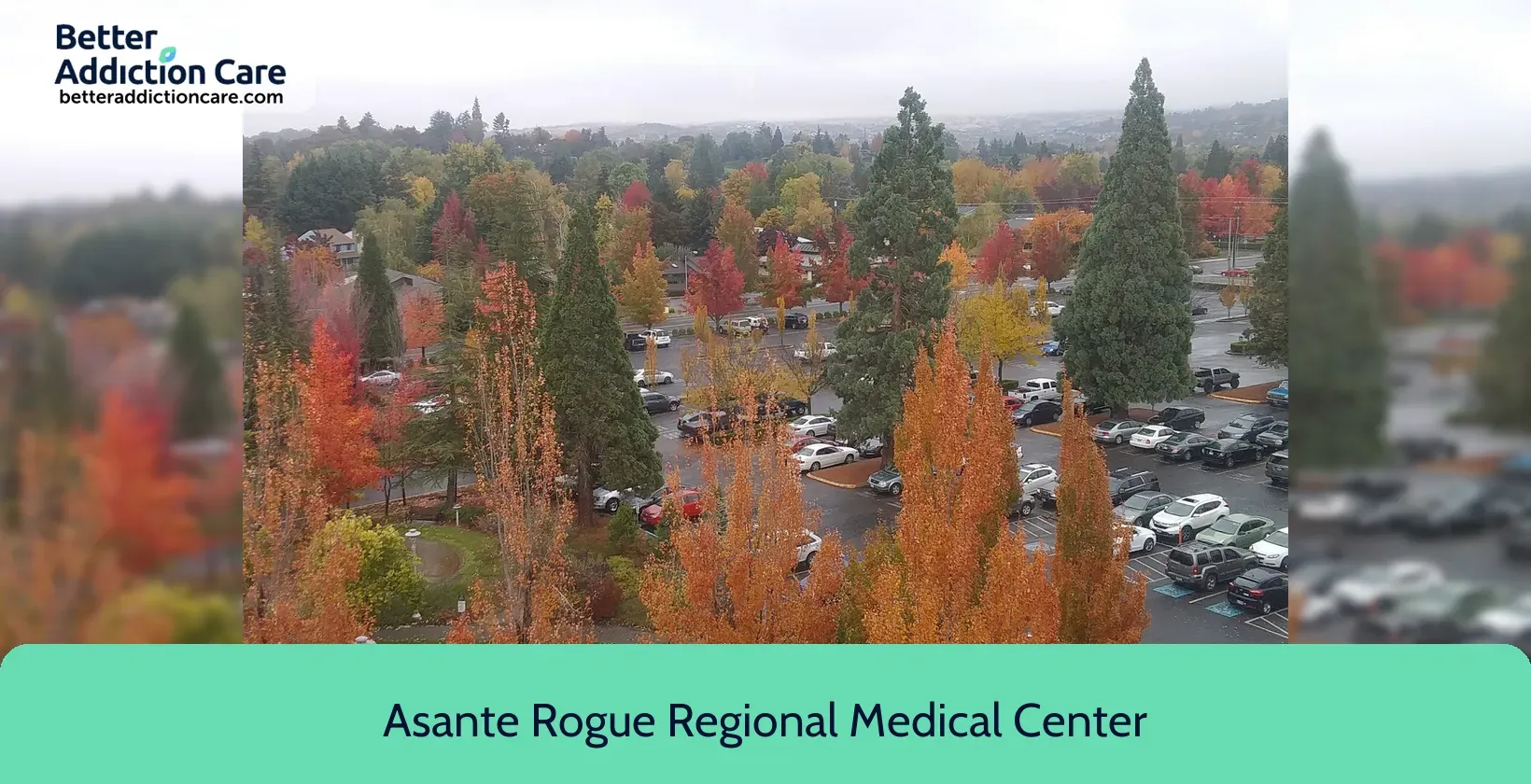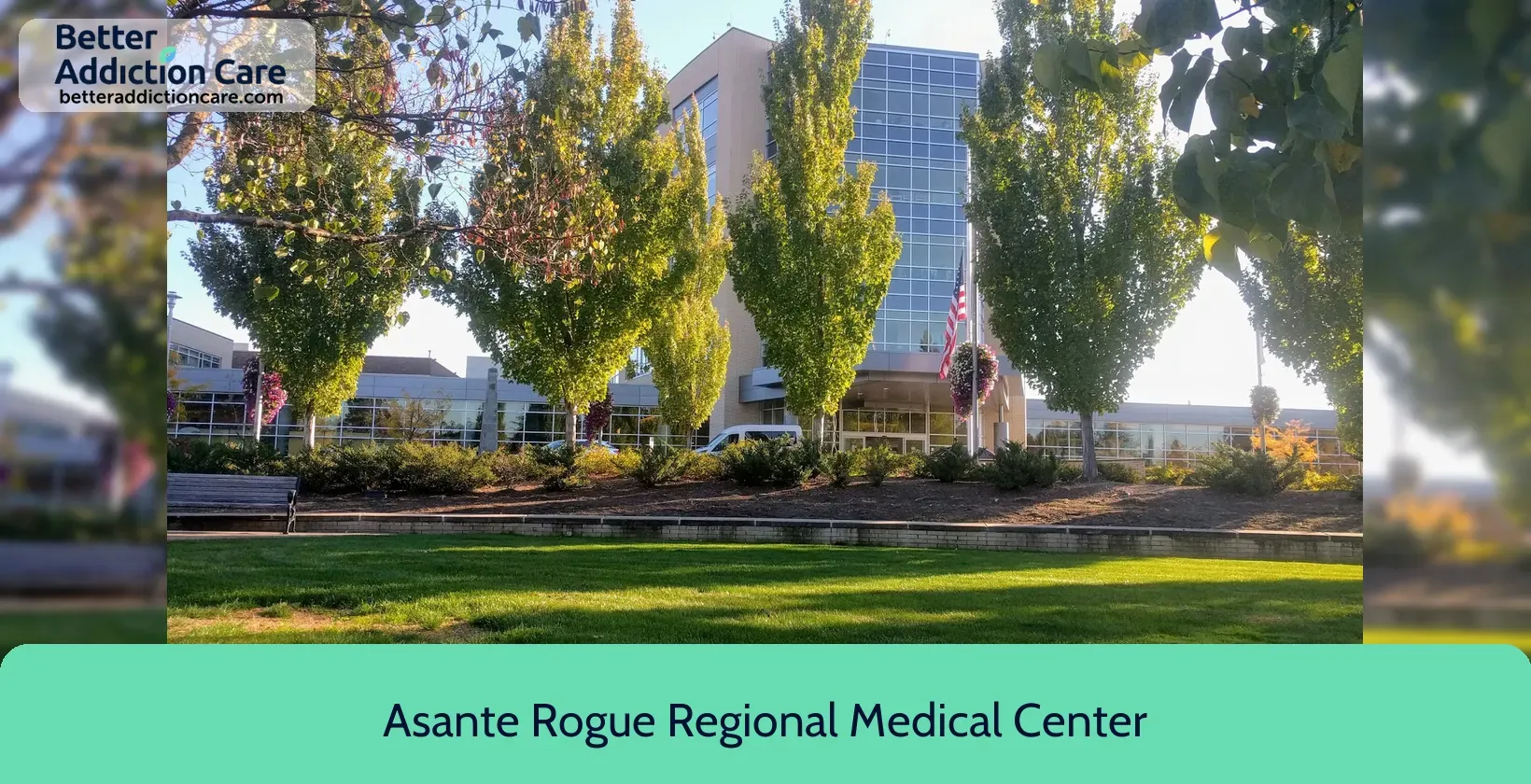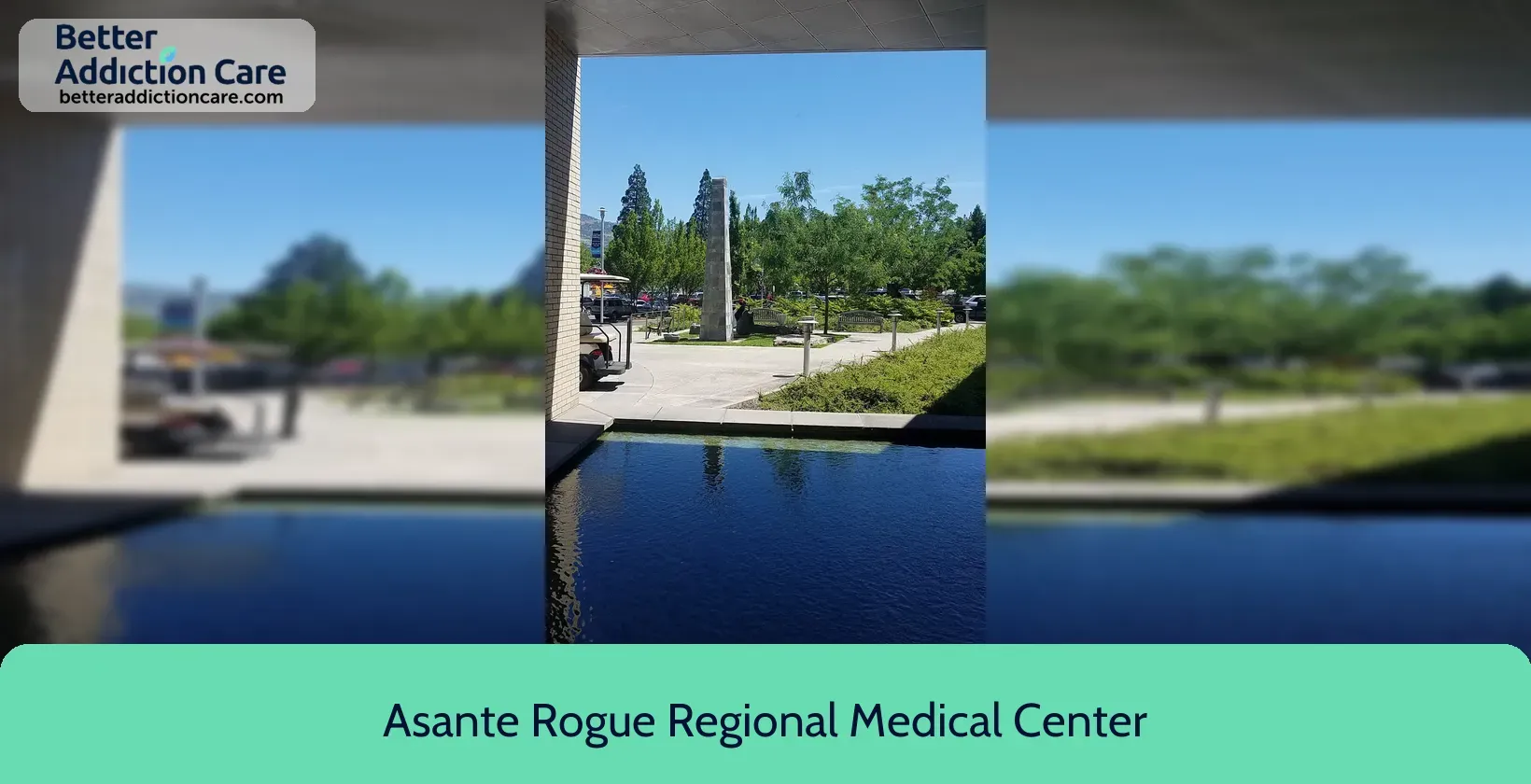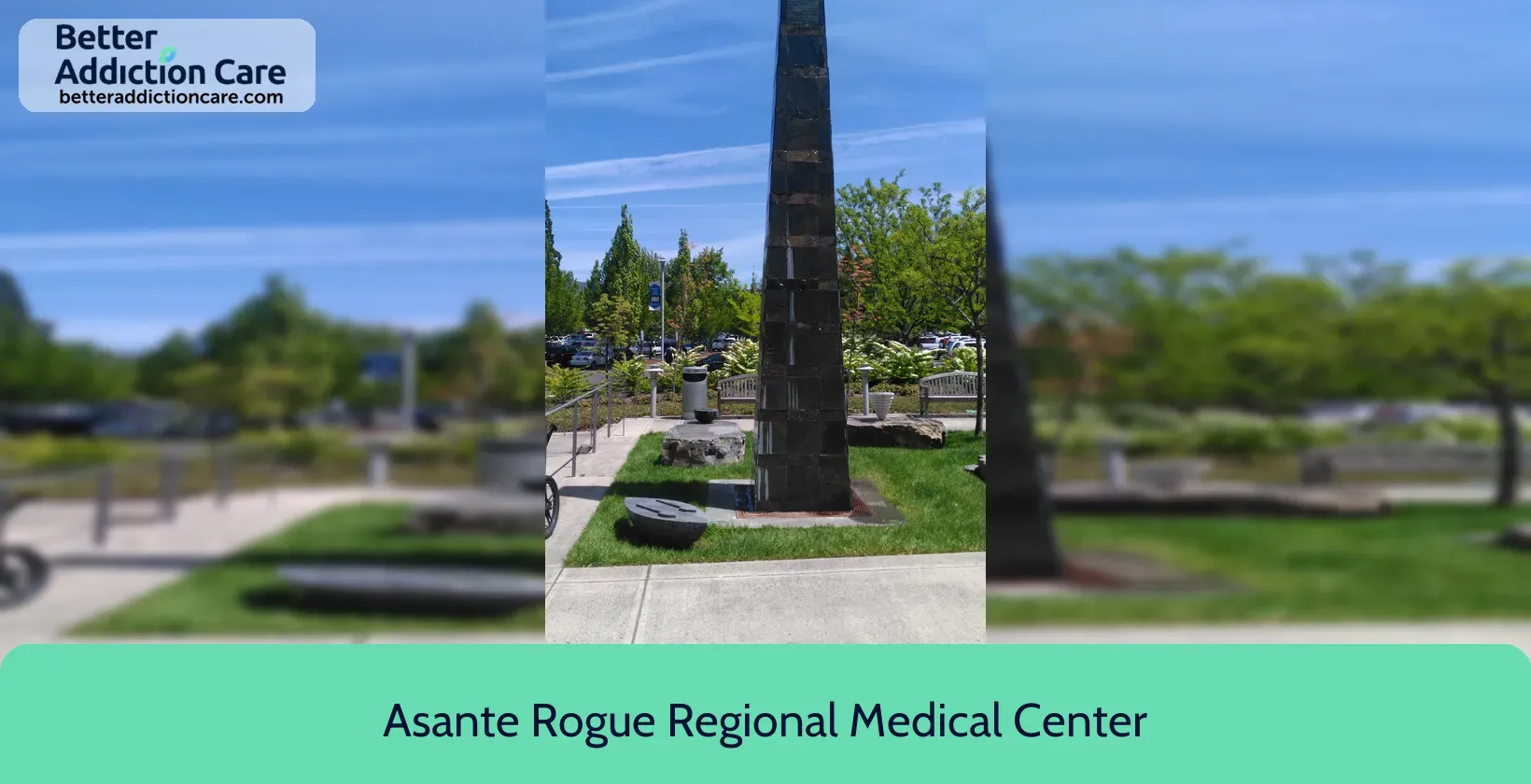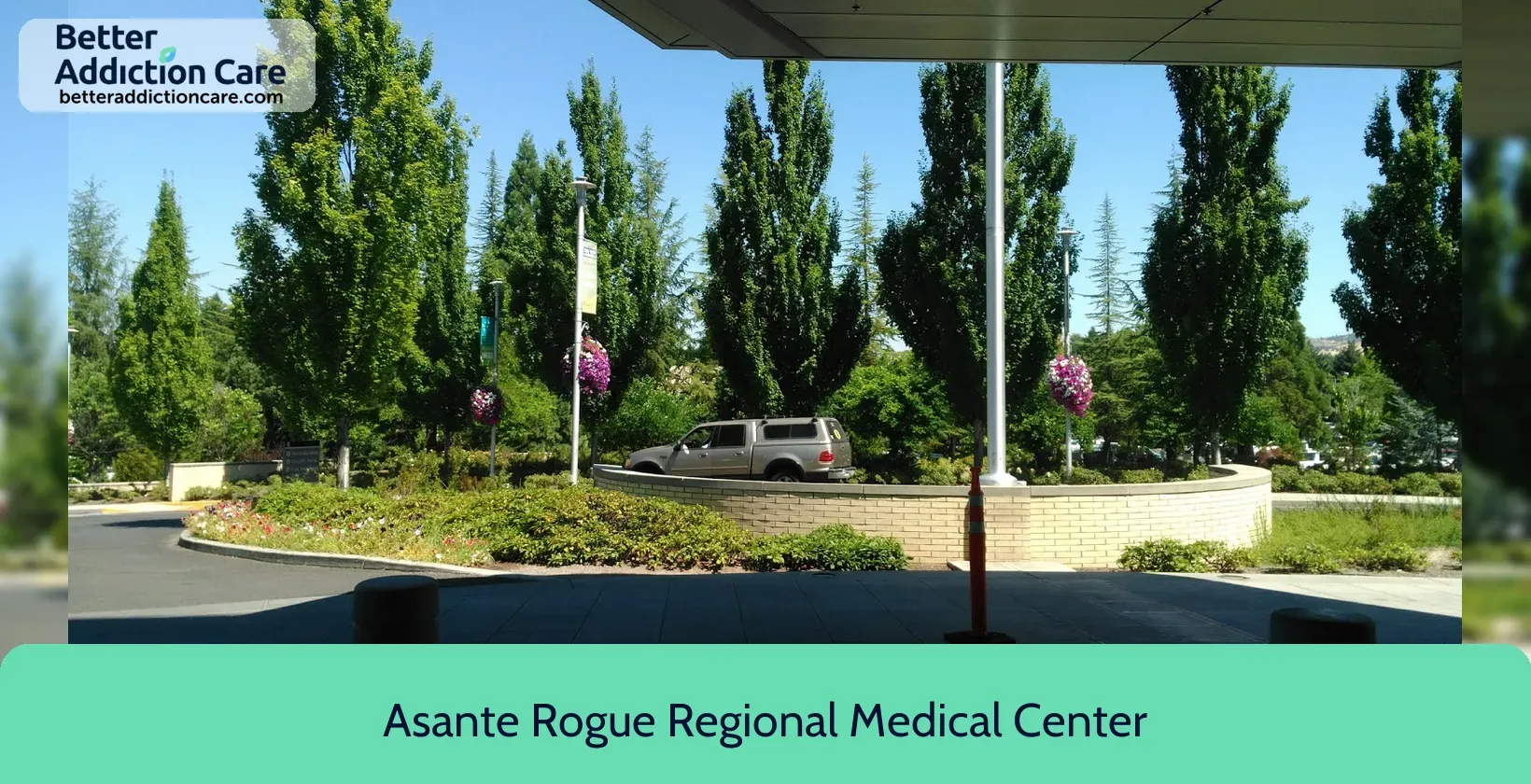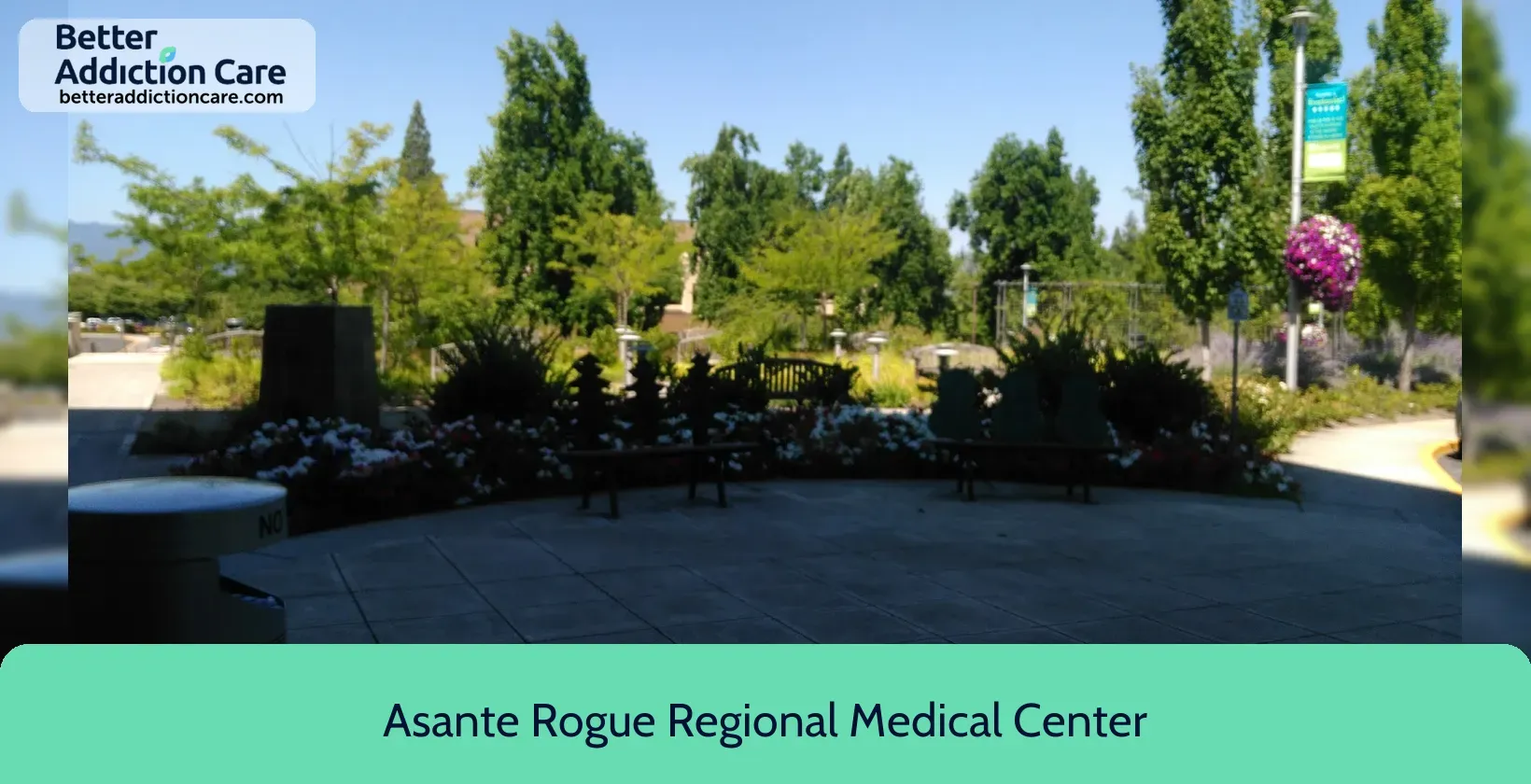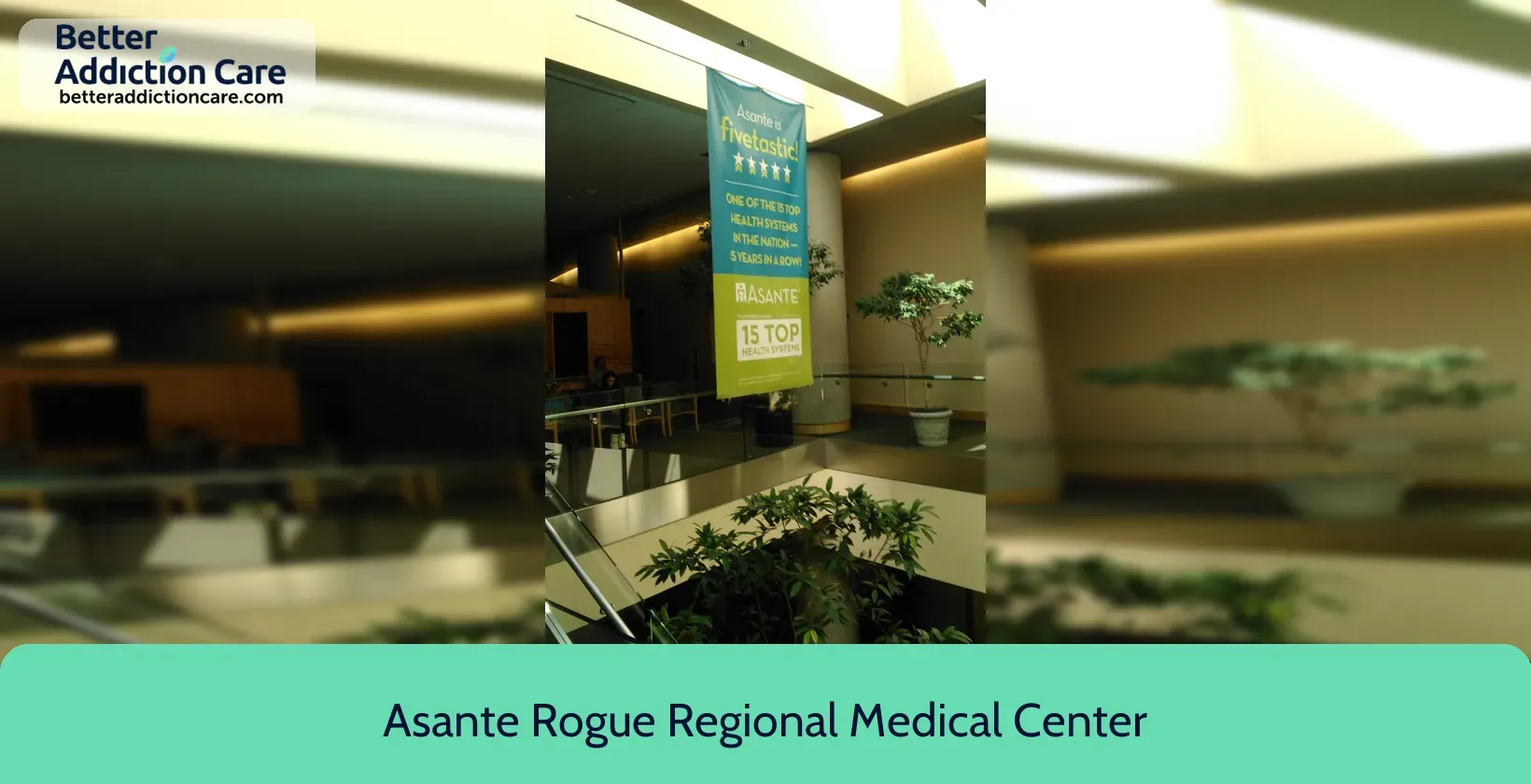Asante Rogue Regional Medical Center - Behavioral Health
Overview
Asante Rogue Regional Medical Center - Behavioral Health is a mental health treatment center for people seeking treatment near Jackson County. As part of their treatment modalities for recovery, Asante Rogue Regional Medical Center - Behavioral Health provides group counseling, cognitive behavioral therapy, and dialectical behavior therapy during treatment. Asante Rogue Regional Medical Center - Behavioral Health is located in Medford, Oregon, accepting cash or self-payment for treatment.
Asante Rogue Regional Medical Center - Behavioral Health at a Glance
Payment Options
- Cash or self-payment
- Medicaid
- Medicare
- State-financed health insurance plan other than Medicaid
- Private health insurance
Assessments
- Screening for tobacco use
- Comprehensive mental health assessment
Age Groups
- Young adults
- Adults
- Seniors
Ancillary Services
- Chronic disease/illness management
- Court-ordered outpatient treatment
- Illness management and recovery
- Suicide prevention services
Highlights About Asante Rogue Regional Medical Center - Behavioral Health
6.62/10
With an overall rating of 6.62/10, this facility has following balanced range of services. Alcohol Rehabilitation: 8.00/10, Drug Rehab and Detox: 6.00/10, Insurance and Payments: 6.00/10, Treatment Options: 6.49/10.-
Alcohol Rehabilitation 8.00
-
Treatment Options 6.49
-
Drug Rehab and Detox 6.00
-
Insurance and Payments 6.00
Treatment At Asante Rogue Regional Medical Center - Behavioral Health
Treatment Conditions
- Mental health treatment
Care Levels
- Hospital inpatient/24-hour hospital inpatient
Treatment Modalities
- Group counseling
- Cognitive behavioral therapy
- Dialectical behavior therapy
- Activity therapy
- Smoking/vaping/tobacco cessation counseling
Ancillary Services
Languages
- Sign language services for the deaf and hard of hearing
Additional Services
- Pharmacotherapies administered during treatment
- HIV testing
Special Programs
- Persons 18 and older with serious mental illness (SMI)
Get Help Now
Common Questions About Asante Rogue Regional Medical Center - Behavioral Health
Contact Information
Other Facilities in Medford

7.29

6.74

6.97

7.56

6.86

6.97
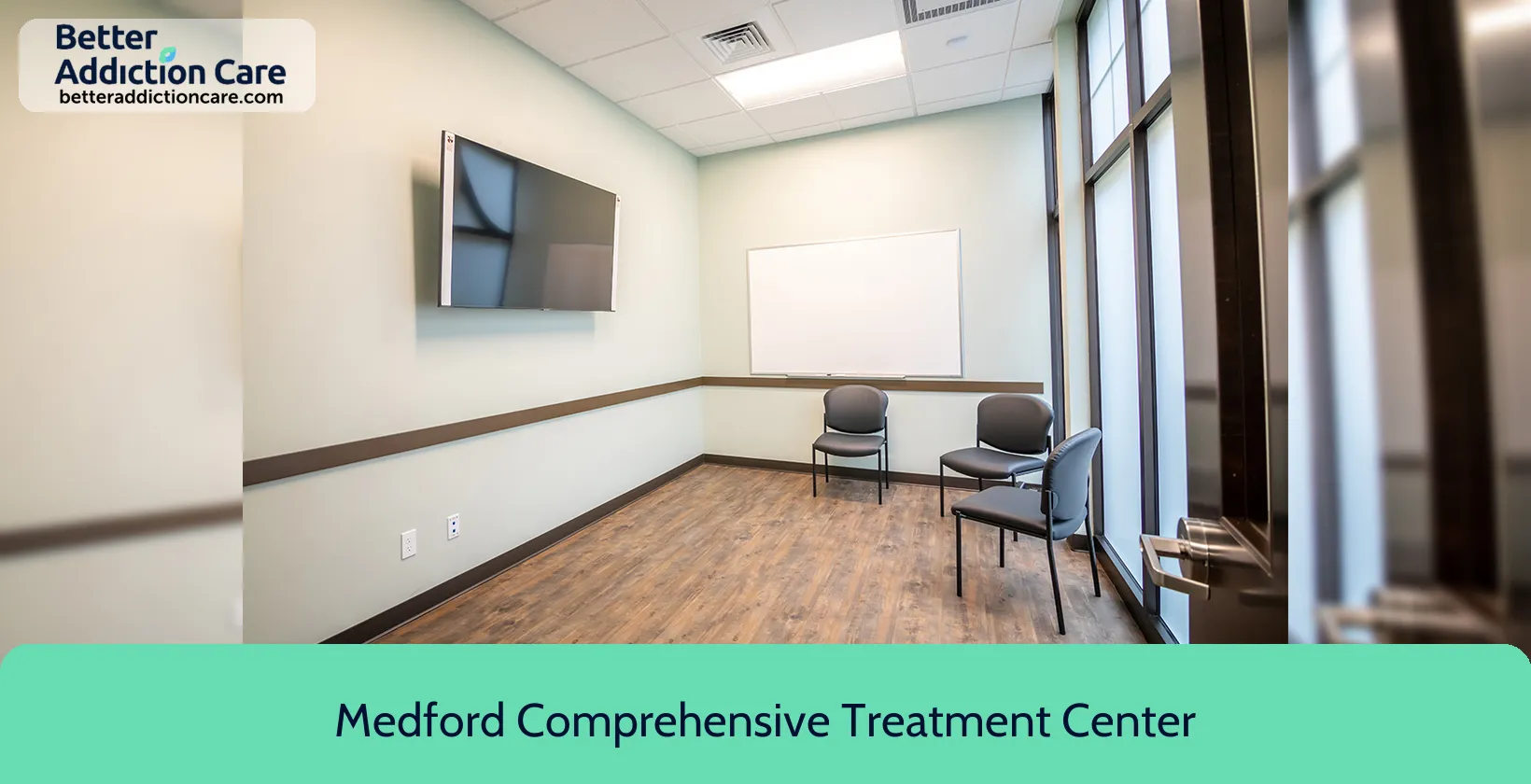
7.17
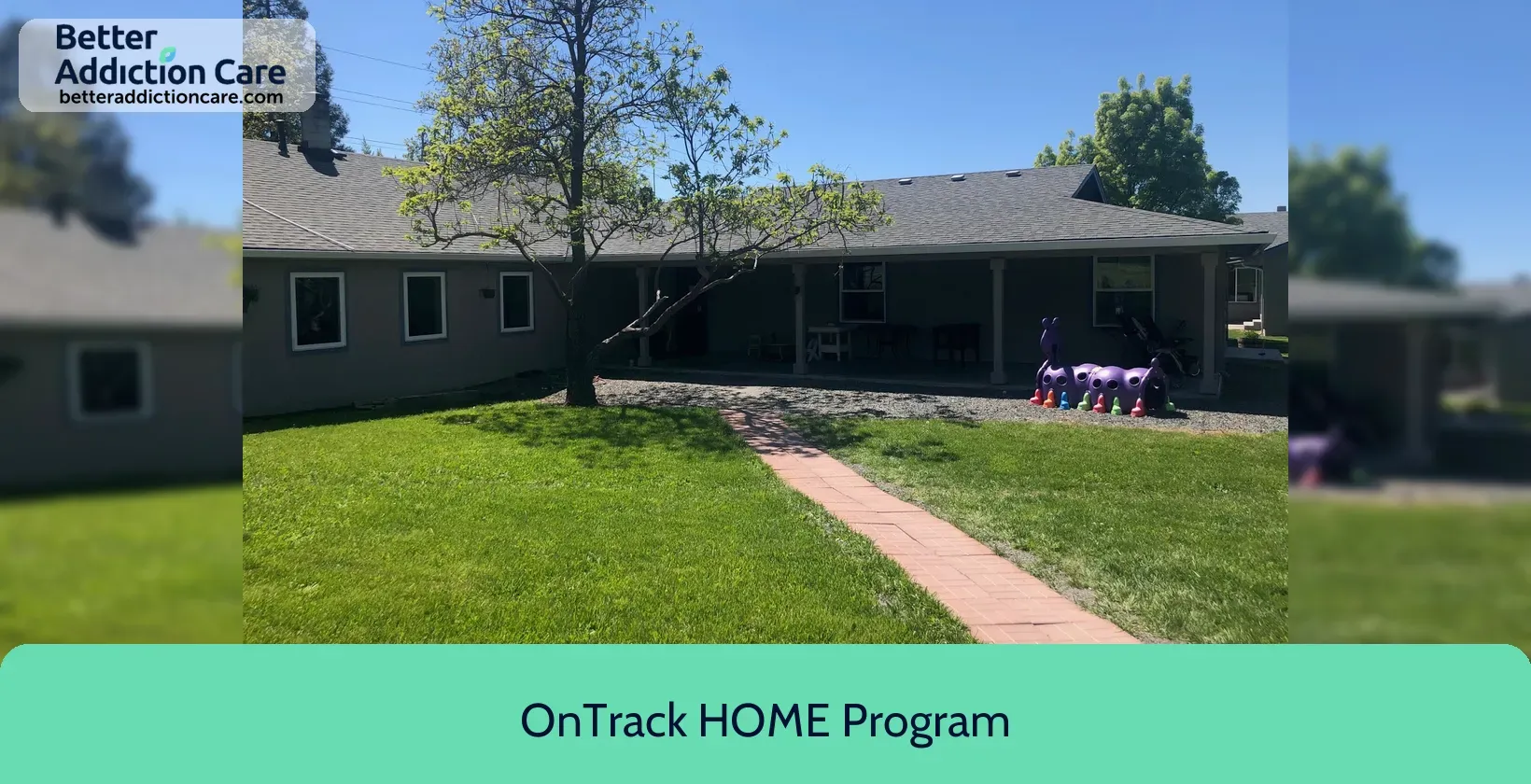
7.10
DISCLAIMER: The facility name, logo and brand are the property and registered trademarks of OnTrack HOME Program, and are being used for identification and informational purposes only. Use of these names, logos and brands shall not imply endorsement. BetterAddictionCare.com is not affiliated with or sponsored by OnTrack HOME Program.
